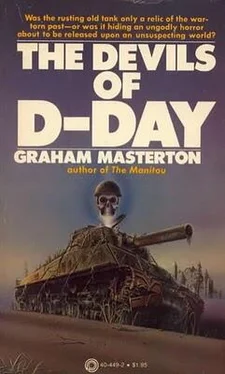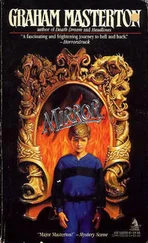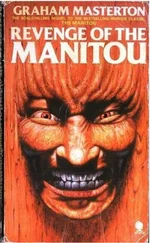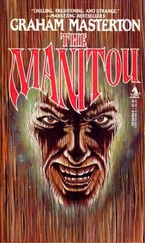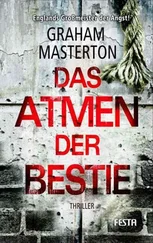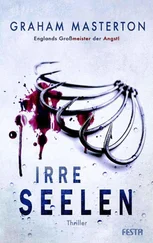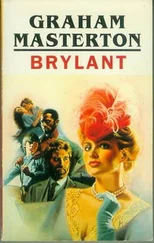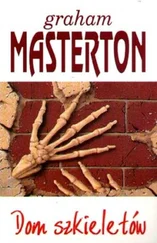Graham Masterton
THE DEVILS OF D-DAY
The worst sort of Devils are those who rejoice in wars and effusion of blood, and afflict men with most cruel stripes.
Francis Barrett
All of the devils and demons that appear in this book are legendary creatures of hell, and there is substantial recorded evidence of their existence. For that reason, it is probably inadvisable to attempt to conjure up any of them by repeating out loud the incantations used in the text, which are also genuine.
I would like to point out that the Pentagon and the British Ministry of Defence strenuously deny the events described here, but I leave you to draw your own conclusions.
Graham Masterton, London, 1978
I could see them coming from almost a mile away: two small muffled figures on bicycles, their scarves wound tightly around their faces, pedalling between the white winter trees. As they came nearer, I could hear them talking, too, and make out the clouds of chilly vapour that clung around their mouths. It was Normandy in December—misty and grey as a photograph—and a sullen red sun was already sinking behind the forested hills. Apart from the two French labourers cycling slowly towards me, I was alone on the road, standing with my surveyor’s tripod in the crisp frosted grass, my rented yellow Citröen 2CV parked at an ungainly angle on the nearby verge. It was so damned cold that I could hardly feel my hands or my nose, and I was almost afraid to stamp my feet in case my toes broke off.
The men came nearer. They were old, with donkey-jackets and berets, and one of them was carrying a battered army rucksack on his back with a long French loaf sticking out of it. Their bicycle tyres left white furry tracks on the hoar frost that covered the road. There wasn’t much traffic along here, in the rural depths of the Suisse Normande, except for occasional tractors and even more occasional Citröen-Maseratis zipping past at ninety miles an hour in blizzards of ice.
I called, “ Bonjour, messieurs ,” and one of the old men slowed his bicycle and dismounted. He wheeled his machine right up to my tripod and said, “ Bonjour, monsieur, Qu’est-ce que vous faites? ”
I said: “My French isn’t too good. You speak English?”
The man nodded.
“Well,” I said, pointing across the valley towards the cold silvery hills, “I’m making a map. Une carte .”
“ Ah, oui ,” said the old man. “ Une carte .”
The other old man, who was still sitting astride his bicycle, pulled down his scarf from his face to blow his nose.
“It’s for the new route?” he asked me. “The new highway?”
“No, no. This is for someone’s history book. It’s a map of the whole of this area for a book about World War II.”
“ Ah, la guerre ,” nodded the first old man. “ Une carte de la guerre, hunk? ”
One of the men took out a blue packet of Gitanes, and offered me one. I didn’t usually smoke French cigarettes, partly because of their high tar content and partly because they smelled like burning horsehair, but I didn’t want to appear discourteous—not after only two days in northern France. In any case, I was glad of the spot of warmth that a glowing cigarette tip gave out.
We smoked for a while, and smiled at each other dumbly, the way people do when they can’t speak each other’s language too well. Then the old man with the loaf said, “They fought all across this valley; and down by the river, too. The Orne. I remember it very clear.”
The other old man said, “Tanks, you know? Here, and here. The Americans coming across the road from Clécy, and the Germans retreating back up the Orne valley. A very hard battle just there, you see, by the Pont D’Ouilly. But that day the Germans stood no chance. Those American tanks came across the bridge at Le Vey and cut them off. At night, from just here, you could see German tanks burning all the way up to the turn in the river.”
I blew out smoke and vapour. It was so gloomy now that I could hardly make out the heavy granite shoulders of the rocks at Ouilly, where the Orne river widened and turned before sliding over the dam at Le Vey and foaming northwards in the spectral December evening. The only sound was the faint rush of water, and the doleful tolling of the church bell from the distant village, and out here in the frost and the cold we might just as well have been alone in the whole continent of Europe.
The old man with the loaf said, “It was fierce, that fighting. I never saw it so fierce. We caught three Germans but it was no difficulty. They were happy to surrender. I remember one of them said, “Today, I fought the devil.”
The other old man nodded. “ Der Teufel . That’s what he said. I was there. This one and me, we’re cousins.”
I smiled at them both. I didn’t really know what to say.
“Well,” said the one with the loaf, “we must get back for nourishment.”
“Thanks for stopping,” I told him. “It gets pretty lonely standing out here on your own.”
“You’re interested in the war?” asked the other old man.
I shrugged. “Not specifically. I’m a cartographer. A map-maker.”
“There are many stories about the war. Some of them are just pipe-dreams. But round here there are many stories. Just down there, about a kilometre from the Pont D’Ouilly, there’s an old American tank in the hedge. People don’t go near it at night. They say you can hear the dead crew talking to each other inside it, on dark nights.”
“That’s pretty spooky.”
The old man pulled up his scarf so that only his old wrinkled eyes peered out. He looked like a strange Arab soothsayer, or a man with terrible wounds. He tugged on his knitted gloves, and said, in a muffled voice, “These are only stories. All battlefields have ghosts, I suppose. Anyway, le potage s’attend. ”
The two old cousins waved once, and then pedalled slowly away down the road. It wasn’t long before they turned a corner and disappeared behind the misty trees, and I was left on my own again, numb with cold and just about ready to pack everything away and grab some dinner. The sun was mouldering away behind a white wedge of descending fog now, anyway, and I could hardly see my hands in front of my face, let alone the peaks of distant rocks.
I stowed my equipment in the back of the 2CV, climbed into the driver’s scat, and spent five minutes trying to get the car started. The damned thing whinnied like a horse, and I was just about to get out and kick it like a horse deserved, when it coughed and burst into life. I switched on the headlights, U-turned in the middle of the road, and drove back towards Falaise and my dingy hotel.
I was only about a half mile down the road, though, when I saw the sign that said Pont D’Ouilly, 4 km . I looked at my watch. It was only half past four, and I wondered if a quick detour to look at the old cousins’ haunted tank might be worth while. If it was any good, I could take a photograph of it tomorrow, in daylight, and Roger might like it for his book. Roger Kellman was the guy who had written the history for which I was drawing all these maps, The Days After D-Day , and anything to do with military memorabilia would have him licking his lips like Sylvester the cat.
I turned off left, and almost immediately wished I hadn’t. The road went sharply downhill, twisting and turning between trees and rocks, and it was slithery with ice, mud and half-frozen cowshit. The little Citröen bucked and swayed from side to side, and the windshield steamed up so much from my panicky breathing that I had to slide open the side window and lean out; and that wasn’t much fun, with the outside temperature well down below freezing.
Читать дальше
